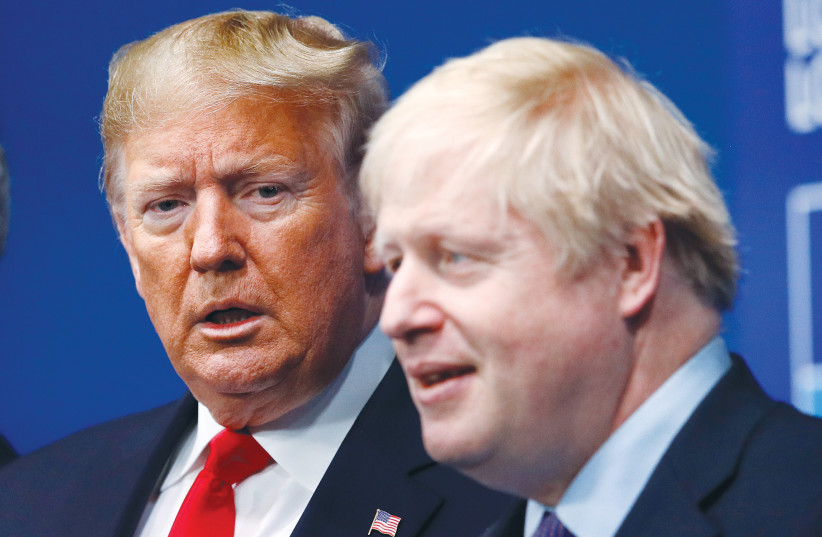Many Americans have the impression that the British are more intelligent and informed than they are. It’s certainly not thanks to the royal family or the fact that they occupied their lands millennia before. Is it their accent or the fact that they sit in the afternoons for tea time eating sandwiches with cucumbers or egg and cress sandwiches?
Now, researchers at Rutgers University in New Jersey have conducted a study that suggests an answer. Their research published in Journal of Pragmatics and entitled “The distinctive uses of right in British and American English interaction” examines how American and British English speakers use the word “right” to respond in conversation.
They found Americans use the word to indicate they are already knowledgeable or informed about a given subject or situation. By contrast, British English speakers use “right” to indicate that what they hear is informative and relevant to the ongoing interaction. In this case, Americans hear British speakers claiming to already know what they are being told – even though they don’t.
Because the British use “right” in conversations more than Americans and because of this difference in meaning between a British and an American “right,” its use might signal to Americans that the British are “smarter,” the researchers say. Additionally, the British accent contributes to the American stereotype that British people are smarter because it sounds more sophisticated than their own, the researchers wrote.
They drew on a collection of approximately 125 segments of everyday conversation and work discussions, including 70 segments in British English and 55 segments in American English. The study “sheds light on how minute linguistic differences, which we might not even recognize, impact our interactions with others and color our perceptions of their expertise and knowledge,” said coauthor, professor of communication at Rutgers.

The Rutgers researchers headed by communications Prof. Galina Bolden initially became interested in conducting this research when they overheard a “puzzling misunderstanding” between an American and a person from the UK during a conversation. They used the methodology of Conversation Analysis to examine sequential environments in which the word “right” was used, its interactional importance and the stress, rhythm and intonation of speech that come together to provide vital information beyond the literal meaning of the words .
The findings illuminate different ways speakers can convey how they lay claim to different levels of knowledge. Additionally, the findings demonstrate the payoffs of using the methods of conversation analysis for understanding intercultural communication processes and learning about different varieties of English and other languages.
According to the study, further research could examine the entire landscape of these kinds of positions in the US vs. UK data with an eye towards the kinds of stances they convey vis-a-vis prior talk. Such analysis makes it possible for researchers to explore whether the differences between the two language varieties are primarily linguistic or cultural, Bolden said.
"Oh, right" vs. "Yeah, right"
On occasion, “right” is produced in combination with other words; in the US, people overwhelmingly say “Yeah, right” while their British counters more commonly say “Oh, right.”
The team concluded that when using the word “right,” Americans convey their knowing stance towards what is being told to them and may also convey their authority over the matter. In contrast, the British say “right” to acknowledge information that is new to them and its relevance to a course of action.
